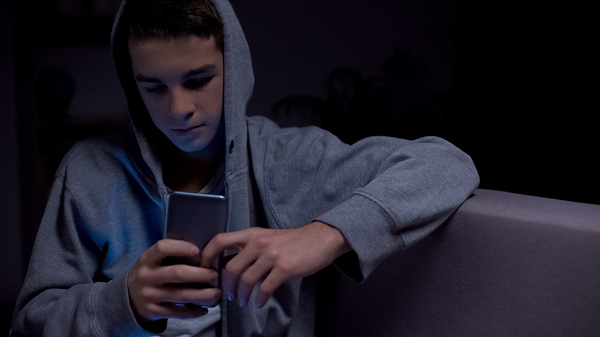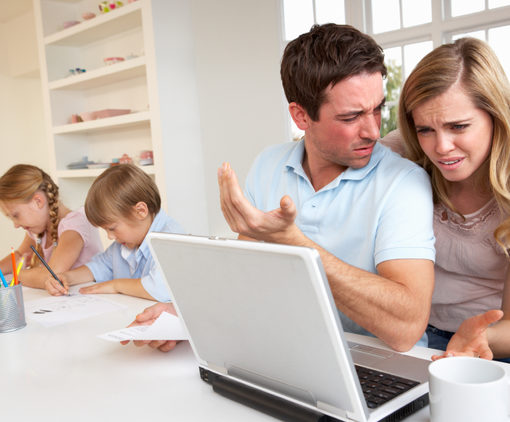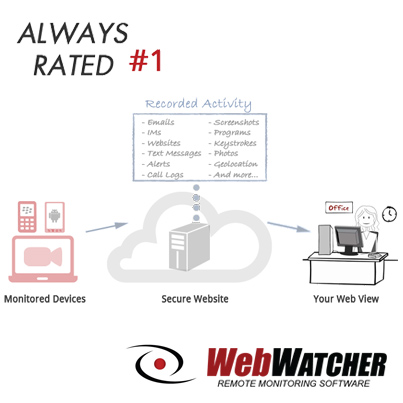With schools closed down and families confined to their homes except for essential business, a lot of people are bored. It’s not just children and teenagers who are looking for distraction and entertainment online, but children and teenagers are potentially more at risk of ending up in a bad situation because of their online activities.
While parents may be relying on apps and the internet to connect their children with their schools, their friends, and with some activities to keep them busy, it’s still important to keep an eye on what apps they’re using and make sure that they’re being safe.
House Party is an app that’s become a quarantine hit. It’s an app that facilitates group video chats and allows users to play group games while they chat. It’s no surprise that an app that allows users to see their friends face-to-face and gives them something to do is popular during a quarantine, but is House Party a safe app for your children or teens to use? Do they know how to use it safely? Take a look at what you need to know.
How It Works
House Party is meant to imitate an actual house party. It allows users to move from room to room, interacting with people in different rooms. Group chats on House Party can consist of as few as two people or as many as eight people. The idea is that the house party is always live, so users can join and leave whenever they want. Users get notifications when a friend enters the chat and when friends of friends enter the chat.
While the app encourages users to have frequent conversations, talking isn’t the only thing they can do. The app lets users start games or join games in progress with other users as well.
Safety Concerns

Reviewers say that there’s nothing egregious about the app itself. The permissions for which it asks (permission to use the mic, camera, and contacts list, for example) are reasonable given that the purpose of the app is to facilitate video chats with friends, and the app has a fairly standard privacy policy. The app can display users’ locations, but this feature is turned off by default, so if users simply leave it off, their location wouldn’t be shown. However, like many apps targeted at teenagers, there is the potential that House Party could be misused or used in unsafe ways.
While chats can be made private by clicking the padlock button at the bottom of the screen, and users can also go into private mode, which locks every room they go into, these settings are not on by default. This means that unless a user takes steps to lock the room or go into private mode, their chats could be interrupted or joined by a stranger.
The app does alert users of “stranger danger” when someone who isn’t already a friend tries to join a chat, but users can simply dismiss this notification and allow the stranger to join.
Because the app is live and immediate, there’s a risk that children or teens using it may encounter inappropriate content. The chats are not moderated or monitored, which means that there’s nothing to stop users from engaging in bullying, using objectionable language, or sharing graphic content. This potentially puts children at risk of being bullied, encountering sexual abuse, or seeing disturbing content. Some teens may use the app for sexting or sharing inappropriate content, and there is the possibility that adults may try to enter chats with teens. Also, there’s nothing to prevent users from screenshotting and sharing private video or text conversations.
What Can Parents Do?
So, should parents allow their children and teens to use House Party? It depends. Used correctly and with some precautions, House Party can be a fun way for teens to congregate, converse, and have fun together at a time when they can’t get together with their friends in person.
Parents should review the features of the app before allowing their teens to download it. Make sure that you’re comfortable with your teen using the app in the first place. If you do decide to allow your teen to use House Party, encourage them to keep their location display in its default off setting so that their real location won’t be publicly displayed. Make sure that they know how to go into private mode and how to lock chats, and encourage them to do so. You should also urge them to leave a chat if a stranger enters it.
Talk to your teen about the potential dangers of interacting with strangers – especially adult strangers – online. Encourage them to block and report users who seem to be following them from platform to platform, who send unwelcome messages, or who otherwise make them uncomfortable. Furthermore, talk to your teen about using good judgment in what they say and share online. Teach them to ask themselves how they’d feel if the conversation they were having could be seen by their other friends or family members. Remind them that privacy is never guaranteed in an online setting.
Encourage your teen to talk to you about anything that happens during a video chat with which they feel uncomfortable, whether that’s being approached by an adult stranger in a chat app or witnessing bullying behavior from a classmate during a game or chat. No matter how careful a parent you are, it’s impossible to protect your teens from every possible negative experience they might have on the internet. Encouraging open conversation and giving your teens the tools and knowledge that they need to protect themselves online will increase their ability to stay safe.
Finally, consider using parental monitoring software to keep tabs on your teenager’s activity online. This will help you pick up on potential problems earlier so that you can intervene when necessary. To find out more about how parental monitoring software can work for your family, get our free trial.





